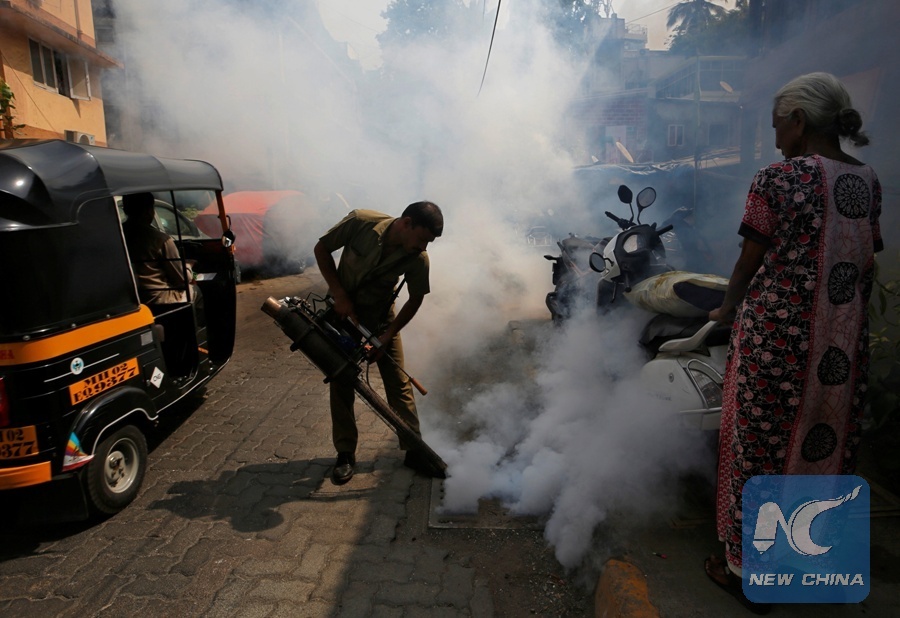
A municipal worker fumigates a manhole in a street to prevent the spread of dengue fever and other mosquito-borne diseases in Mumbai, India, May 24, 2018. (Xinhua/REUTERS)
CHICAGO, July 24 (Xinhua) -- Analysis of 1959-2009 data revealed that population density and proximity to a country already experiencing an outbreak were the factors most closely associated with a country's own likelihood of experiencing an outbreak.
Researchers at the University of Illinois (UI) analyzed chikungunya and dengue outbreak data from 76 countries over a period of 50 years, focusing on regions across the Indian Ocean that are hard hit by these and other mosquito-borne infectious diseases.
"In general, when we look across time, these things are quite localized in that countries that are near each other are more likely to have the same outbreak," said UI pathobiology professor Marilyn O'Hara Ruiz, who led the research. "We also found that outbreaks are more likely to co-occur in densely populated areas."
The study found no significant association between local temperature or precipitation and outbreak risk, a somewhat unexpected finding as heat, rain and fluctuations in mosquito populations are often linked.
The findings reassure those who worry that distant outbreaks will travel across the world to strike closer to home.
Another important implication of the work is that countries need to share data with their neighbors, Smith said.
Chikungunya and dengue are mosquito-borne viral diseases with overlapping distribution globally. Dengue infections are on the rise globally, according to the World Health Organization. Both diseases are more likely to occur in tropical or subtropical regions.
The study, posted on UI website Tuesday, has been published in the journal Spatial and Spatio-temporal Epidemiology.

